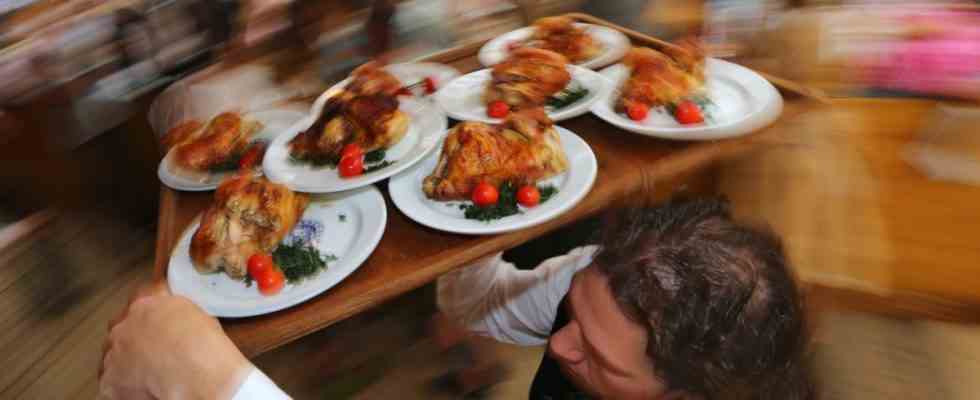“No to the organic Oktoberfest”: The press release of the Bavarian hotel and restaurant association Dehoga sees terrible things coming to the Oktoberfest. Its managing director Thomas Geppert speaks of a “planned economy in which a small group decides what is good for the people and what is not”. Fortunately, however, one lives in a country “in which everyone is mature enough to decide for themselves what they want”. The official closes his press release with the pithy words: “There is no need for third-party regulations on what to eat and what not.”
The reason for Geppert’s excitement is an action by the group “Faire Wiesn”, which took place ten months ago on Marienplatz, at that time still under the motto “Hendlsauerei”. At that time, around 60 different initiatives had joined forces, including the Bund Naturschutz, the Munich Nutrition Council, Slow Food, Green City and the North-South Forum. They called for “Munich’s major events like the Wiesn to be organized responsibly, fairly and sustainably”.
Among other things, no more food from industrial intensive animal husbandry should be used in the long term in order to “comply with the agreed climate neutrality 2035”. According to the initiatives, the proportion of organically produced food at major events should gradually be increased: by 2027 to 50 percent, by the end of 2035 major events should also be completely supplied with organic food.
The latter is the reason why Dehoga is now reacting very violently with some delay. “It is simply unrealistic to be able to get this amount of goods in the required quality at all,” says Managing Director Geppert, “quite apart from that, a visit to the Oktoberfest would be priceless for most people. What’s fair about that?” Bavaria is loved for its Liberalitas Bavariae: “Live and let live is the motto.” In addition, there is already “everything that is required at the Oktoberfest today”.
That’s not entirely true, because so far the proportion of organic food at the Wiesn has only been a few percent and not 50 or even 100. The Faire Wiesn initiative is also aware that a completely organic Oktoberfest would not be possible at the moment because it is still there weren’t enough organic producers for it. That’s why she called for a “round table” last May to explore how the organic quota at the Oktoberfest could be increased.
This “round table” is now to take place in June with the second mayor, Katrin habenschaden (Greens). “Everyone involved is invited,” says the mayor, “the small and large Wiesn landlords, the initiatives, the city administration and the interest groups.” It’s not about making rules. Rather, they want to explore together how to get closer to the goal of an ecologically oriented Wiesn, which has already been formulated in several city council resolutions. “It’s about taking stock of what has already happened, what is feasible and which products work best with it. It is important to me in this process to maintain the character of the Wiesn as a folk festival for everyone,” said habenschaden.
As far as the Bavarian Dehoga is concerned, they don’t seem to want to go along with it. Economics officer and Wiesn boss Clemens Baumgärtner (CSU) had already anticipated the Dehoga criticism almost word for word in the Bild newspaper under the headline “Baumgärtner rages”: “Compulsory regulations and a nutritional planned economy will not exist with me.” When SZ wrote on Thursday what exactly he had to criticize about the demands of the “Faire Wiesn” initiative and where he might see compromises, there was no reaction from either the Wiesn boss or his press spokesman.

